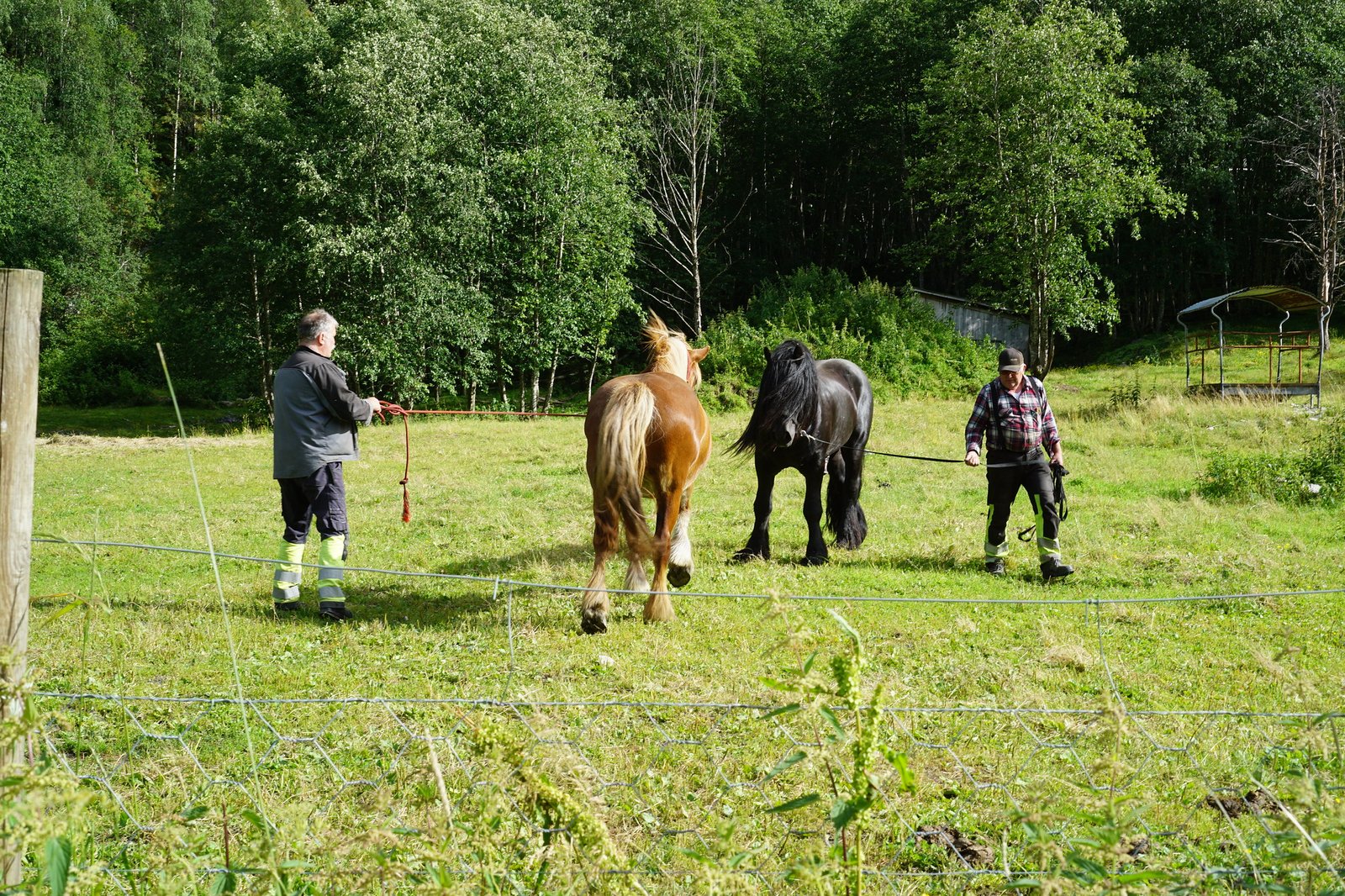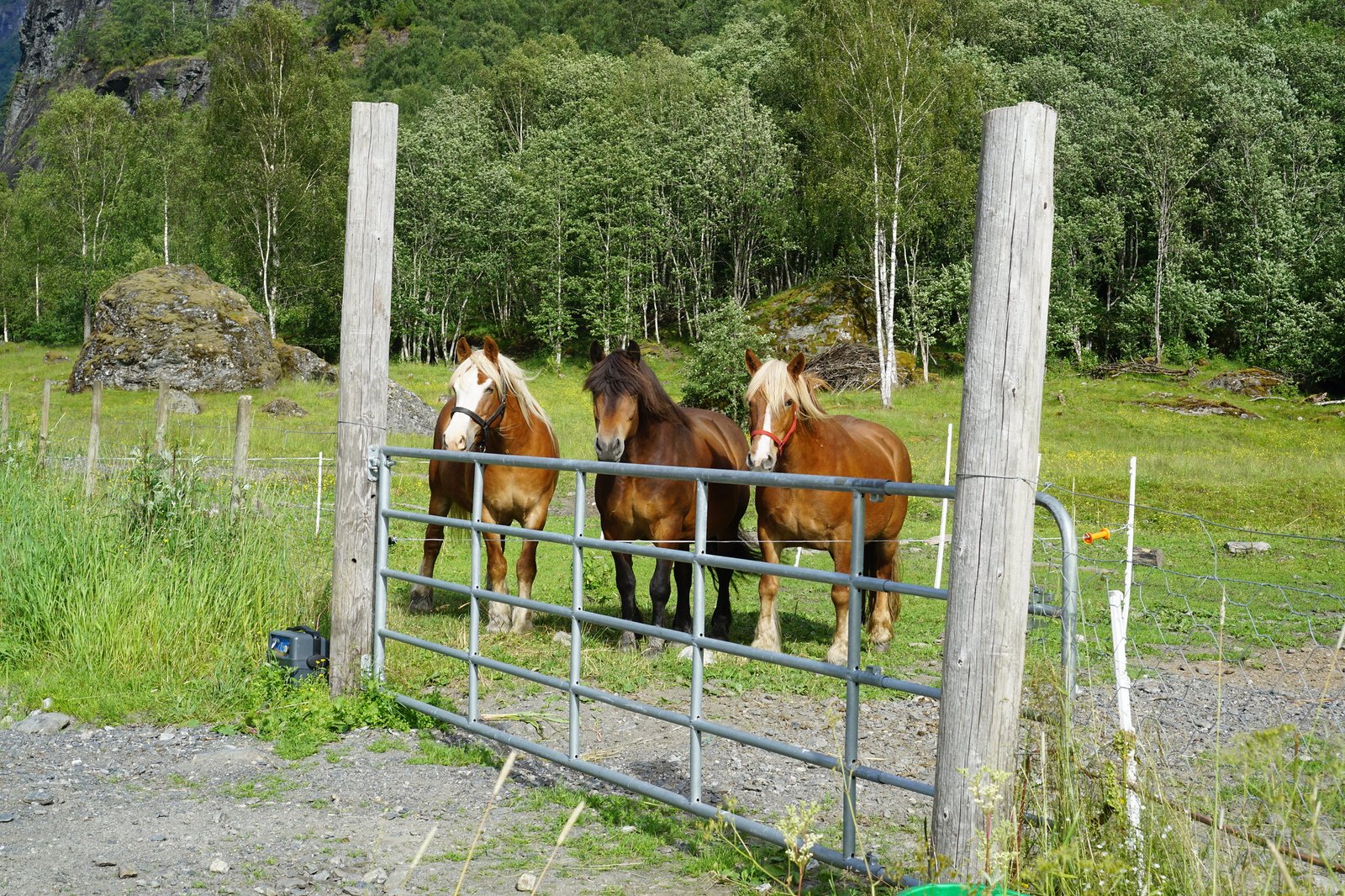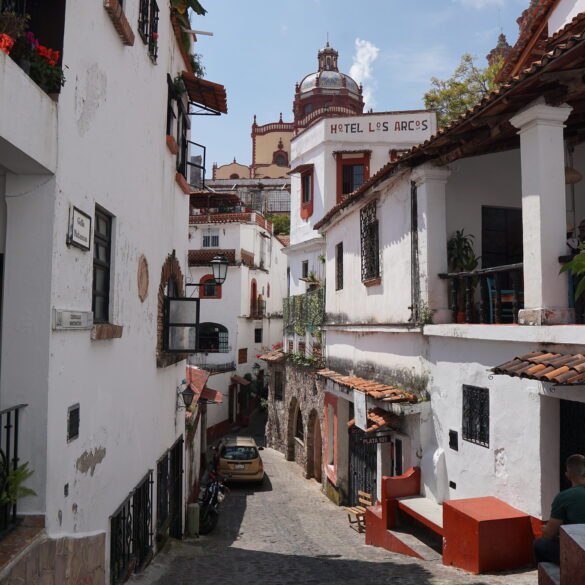It was late evening by the time we arrived at our Airbnb in a tiny hamlet by Galdhøpiggen, the tallest mountain in Norway. We were tired from the long day and were relieved to finally reach the isolated farm that we would call our home for the next few days.
“It’s still a functioning farm,” I told Victor, “It’s over a hundred years old, and we are going to be staying in a remodeled log cabin on the premises. I thought it would be a nice change from the city condos.”
We stepped out into the fresh air and looked around. Victor took a deep breath.
“Smells like manure!” he exclaimed.
I cringed. I didn’t account for this particular aspect of farm living when booking a cute-looking cabin online.
“It’s not too bad…” I tried to say, but Victor interrupted, “Are you kidding me? It’s great! It smells like home!”
I watched him run towards a confused mama goat, with her two kids hiding behind her. How does that saying go? You can take a boy out of a village, but you can’t take a village out of a boy?
Victor was born and raised only half an hour away from the Belarusian capital city of Minsk but spent his childhood in a small village surrounded by chickens, goats, cows, vegetable gardens, and endless fields of potatoes and turnips. Here, on a small Norwegian farm, he was finally in his element. As soon as we carried our bags to the cabin, he ran off to check out the vegetable garden and the cow shed.
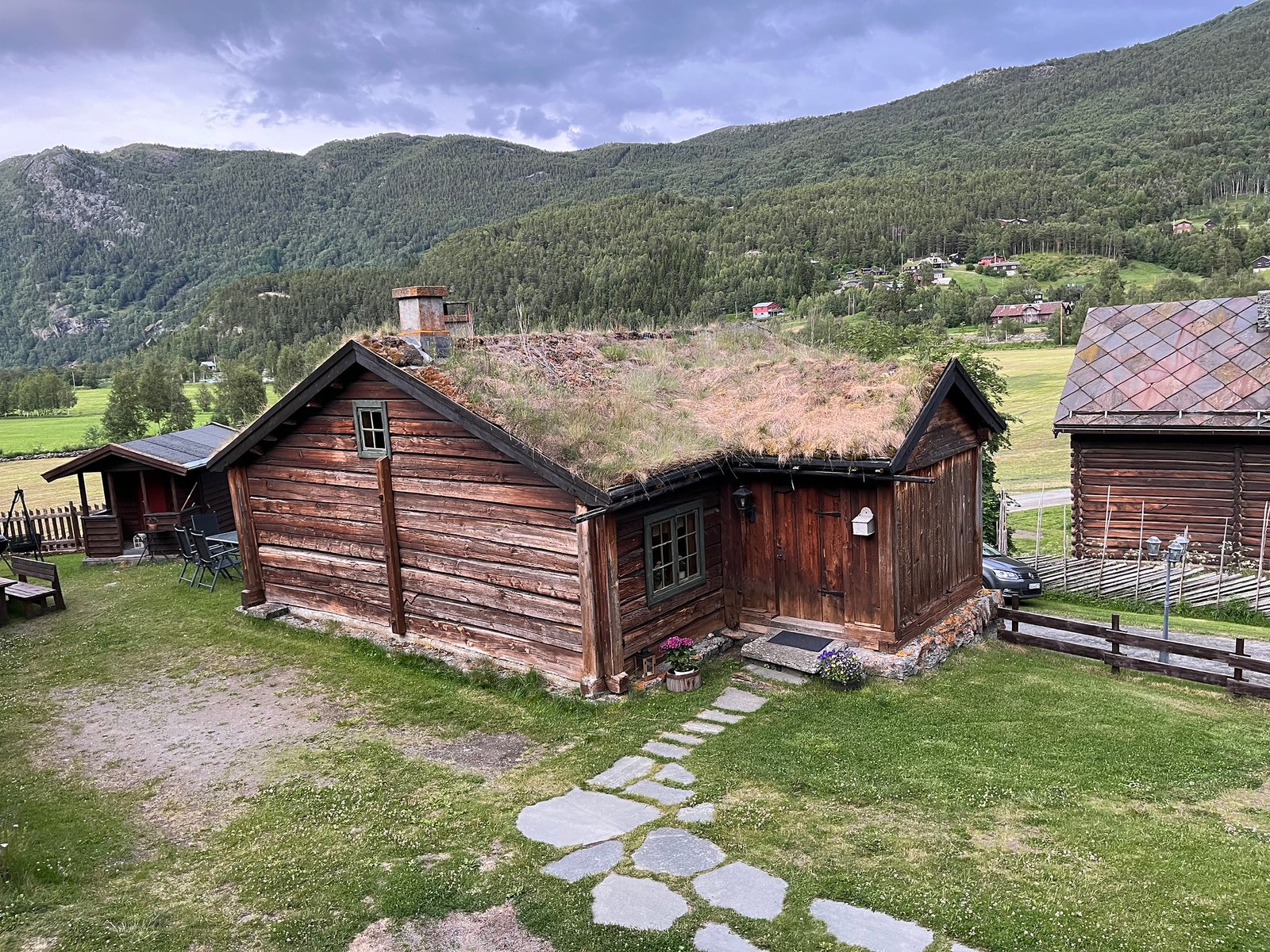
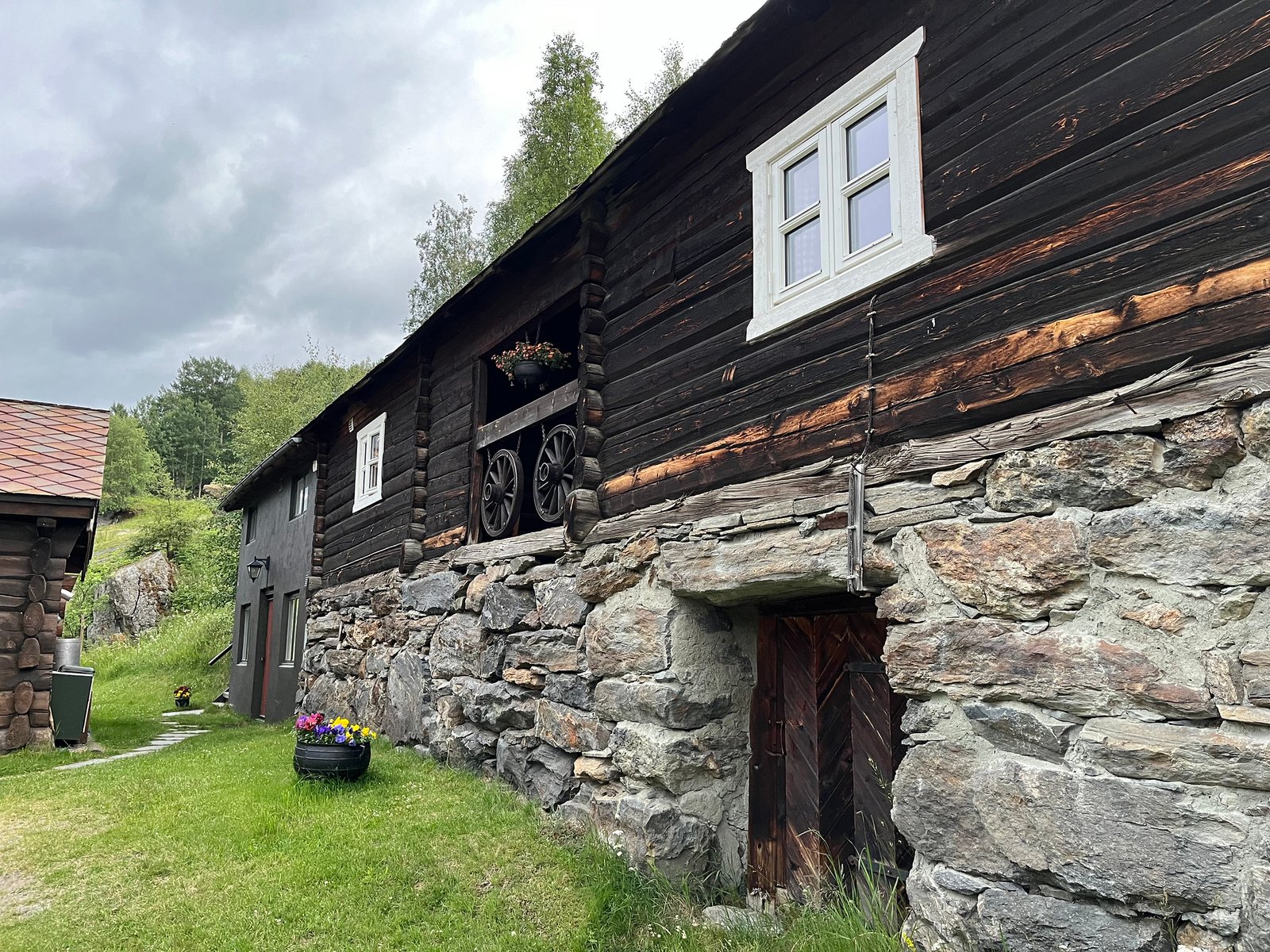
The next morning, he showed me around the farm, pointing out the raspberry bushes and pretty flowering plants that turned out to be potatoes, as well as all the goats, cows, and chickens. But, despite the familiar smells, animals, and produce, this little Norwegian farm was a far cry from the usual impoverished villages we have seen during our travels. This and every farm and village we saw in Norway were clean, well-maintained, and thriving, while rural areas in many other parts of the world are often neglected and in demographic decline, as young people choose to move to larger towns. It was interesting to see that in Norway due to governmental policies which support rural development and invest in infrastructure, there is an influx of residents moving to smaller towns and villages for a high quality of life.
The elderly couple who owned this small farm had the means to purchase a lot of heavy-duty farming equipment such as tractors, combines, and harvesters. Moreover, they were able to build a modern home for themselves in the last thirty years or so, while remodeling the log house where their grandparents and parents lived into a cute Airbnb. All of this seems like an impossible luxury for rural residents of many developing countries. If the village houses are remodeled, it’s usually only after being bought out by rich city folks who are looking to have a summer house outside of the bustle of urban centers.
Overall, I was left with the same feeling as I had in Oman after seeing how much life improved for residents in the last 50 years – it is incredible how much progress can be made when the government is interested in helping its own people, rather than padding its own pockets.
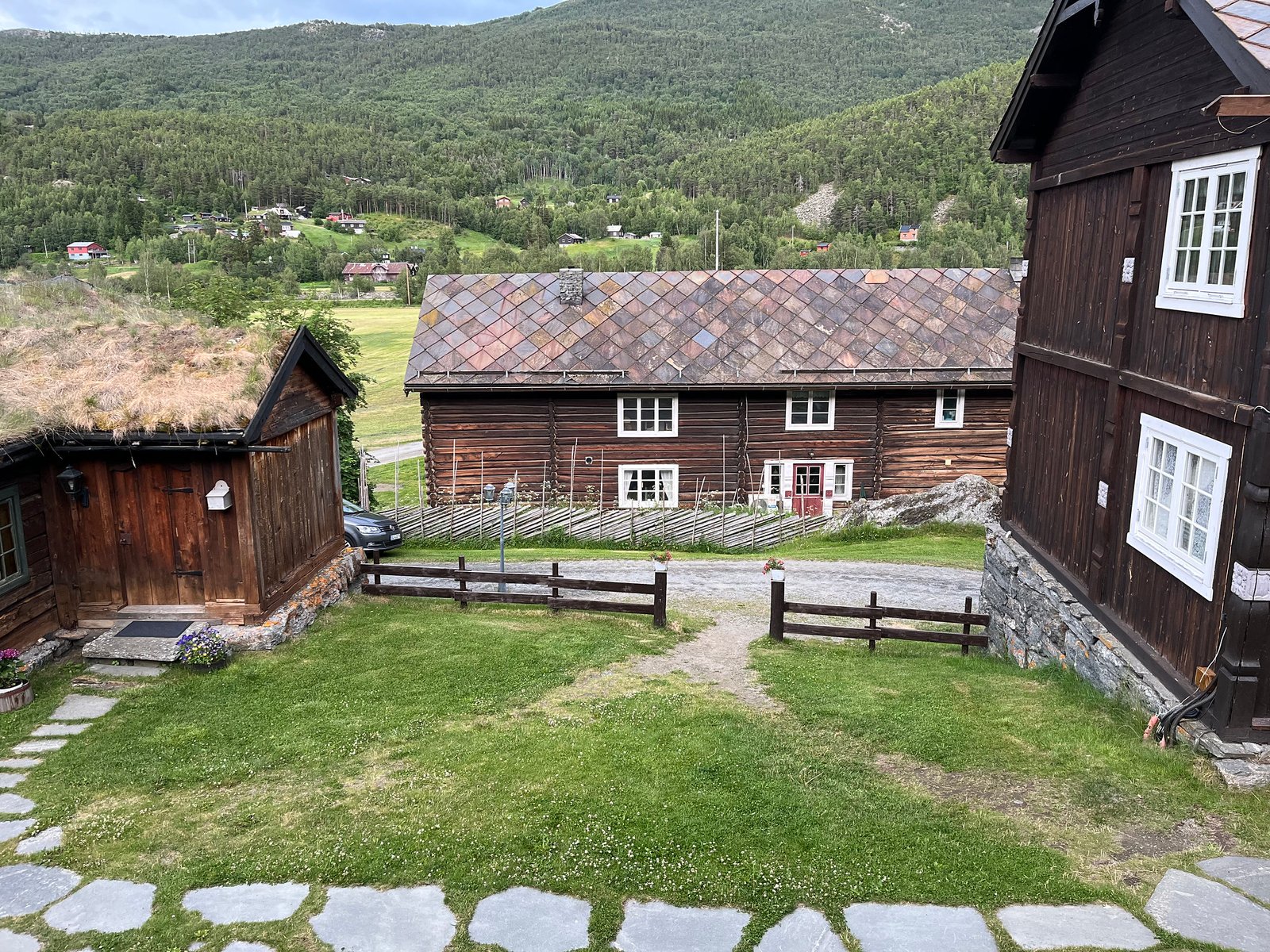
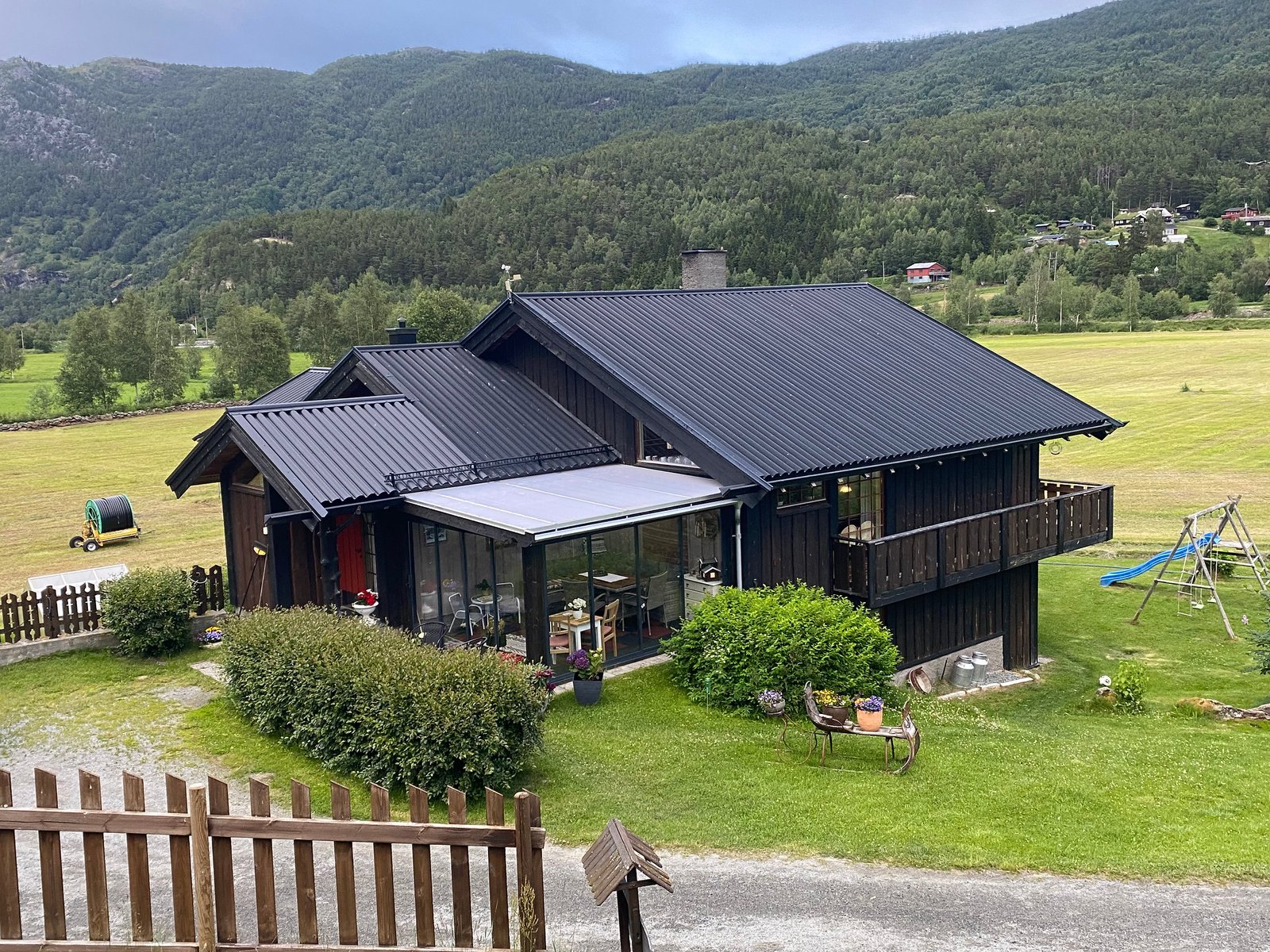
We have visited many rural areas all around the world, like India, Egypt, Vietnam, Cambodia, and Cuba, and I have always been struck by how little changes in small forgotten villages over the years, as fields are still being plowed by horses or bulls. We’ve seen a lot of horses grazing on the fields in Norway, and I did wonder what, if any, function they still had on the small farms. I did happen to have an interesting conversation with a farmer outside Skjolden about the changing state of Norwegian village life.
We were driving down a beautiful Sognefjellet road towards Jotunheimen National Park and stopped to see Asafossen Waterfall (this whole sentence is quite a mouthful). Instead of looking at the stunning waterfall, I was drawn in by three beautiful mares grazing in a field. I ran to the fence to take some pictures of the horses in front of the waterfall, and the friendly mares approached me and gently rubbed their heads against my hands and torso. While I was giggling in absolute delight, a farmer approached and said that the horses were waiting… he wrinkled his nose, trying to remember the correct English word… “They are waiting for a… man. Man coming soon!”
I wasn’t sure what he meant. Are they waiting for their owner?
“Man… horse! Man horse!” the farmer explained.
“Oh! A stallion?”
“Yes! Stallion coming soon! Maybe horse babies next year!” and he petted one mare affectionately.
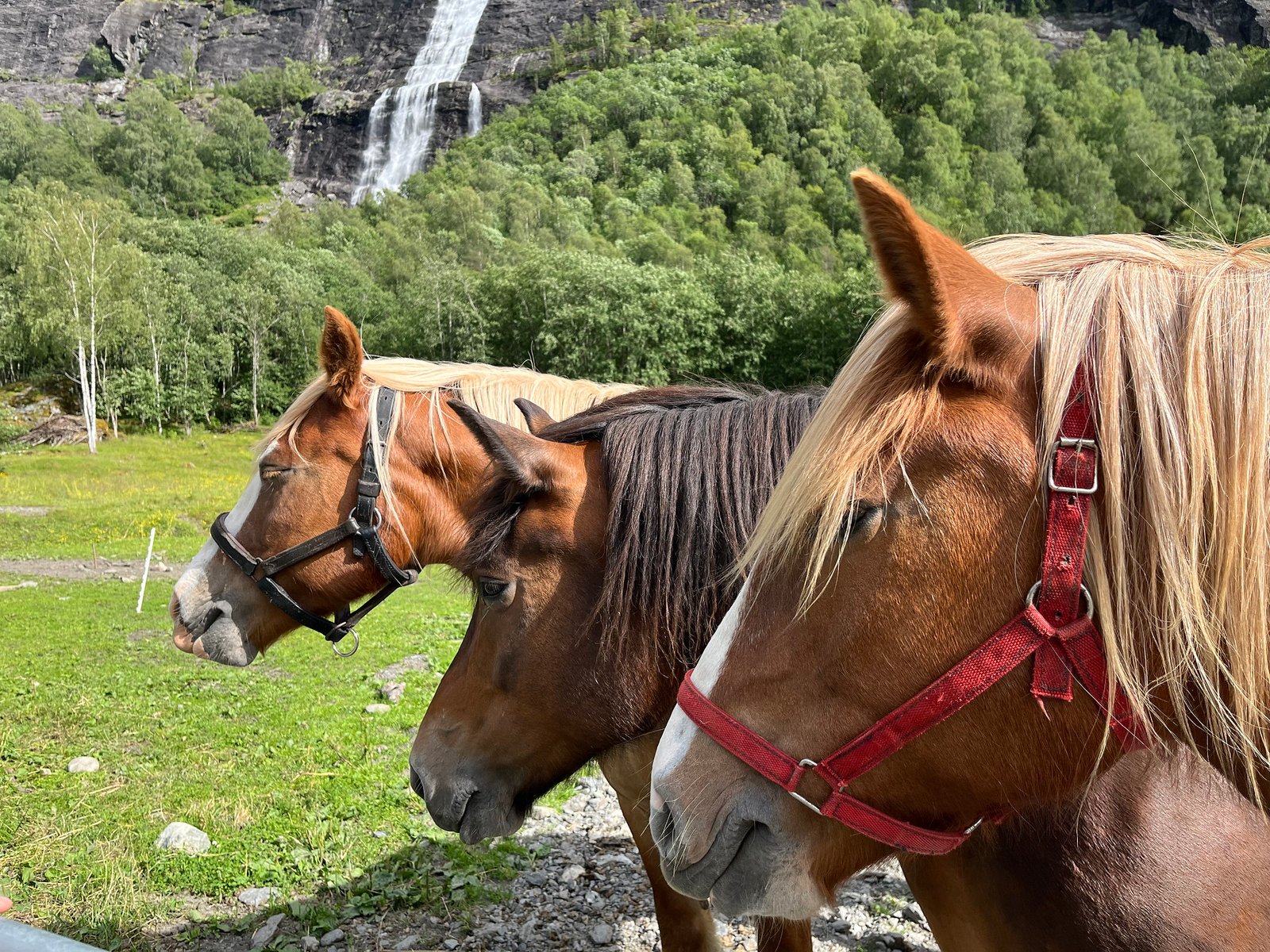
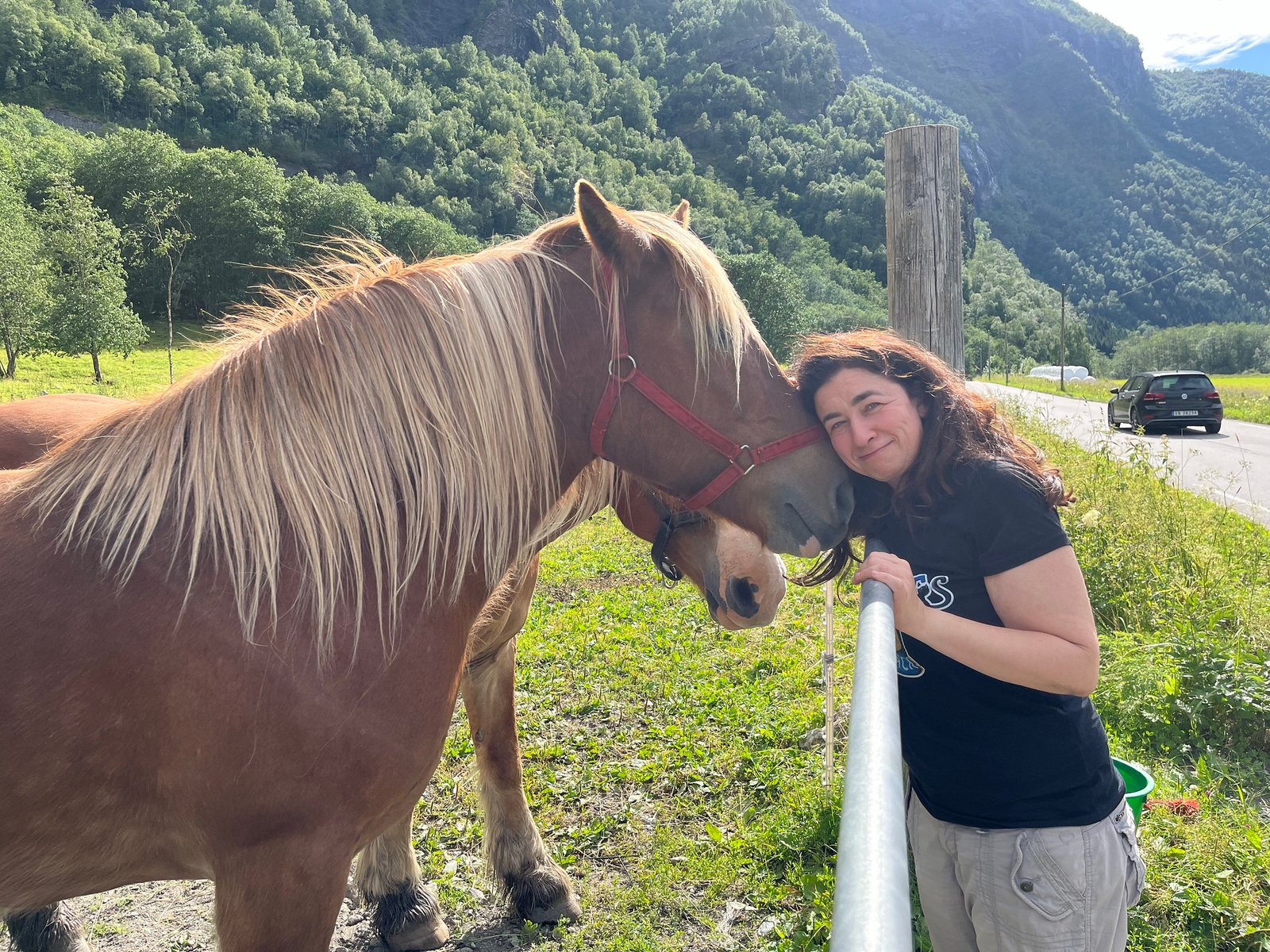
He went on to tell me that these horses are already very old, 17, 19, and 21 years old, so it’s unlikely that they will get pregnant, but he is hopeful. I asked if these are working horses, and he laughed, “Oh no! Not a day of work in their life! Before, we kept horses for work, now they are just a hobby!” He went on to tell me that even as a hobby, keeping horses on the farms is losing popularity as young Norwegians are more interested in cars than horses. He seemed genuinely remorseful about this, gently petting the mare closest to him.
Soon, a truck with a trailer arrived, a gorgeous jet-black stallion neighing and striking his hoofs against the metal floor, clearly impatient to meet his mares. Victor and I walked off towards the waterfall to give these horses some privacy, and when we came back, a mere 20 minutes later, the stallion was already being loaded back in the trailer. The three mares were standing by the fence, wistfully staring at the departing “man horse”, clearly quite taken with their suitor. The farmer, with a big smile on his face and clearly in good spirits, gave us a big thumbs up.
Hopefully, next year there will be horse babies. And hopefully, enough young Norwegians to continue the hobby of raising the world’s most privileged horses, whose only job is to graze in beautiful valleys and pose for tourists’ pictures.
